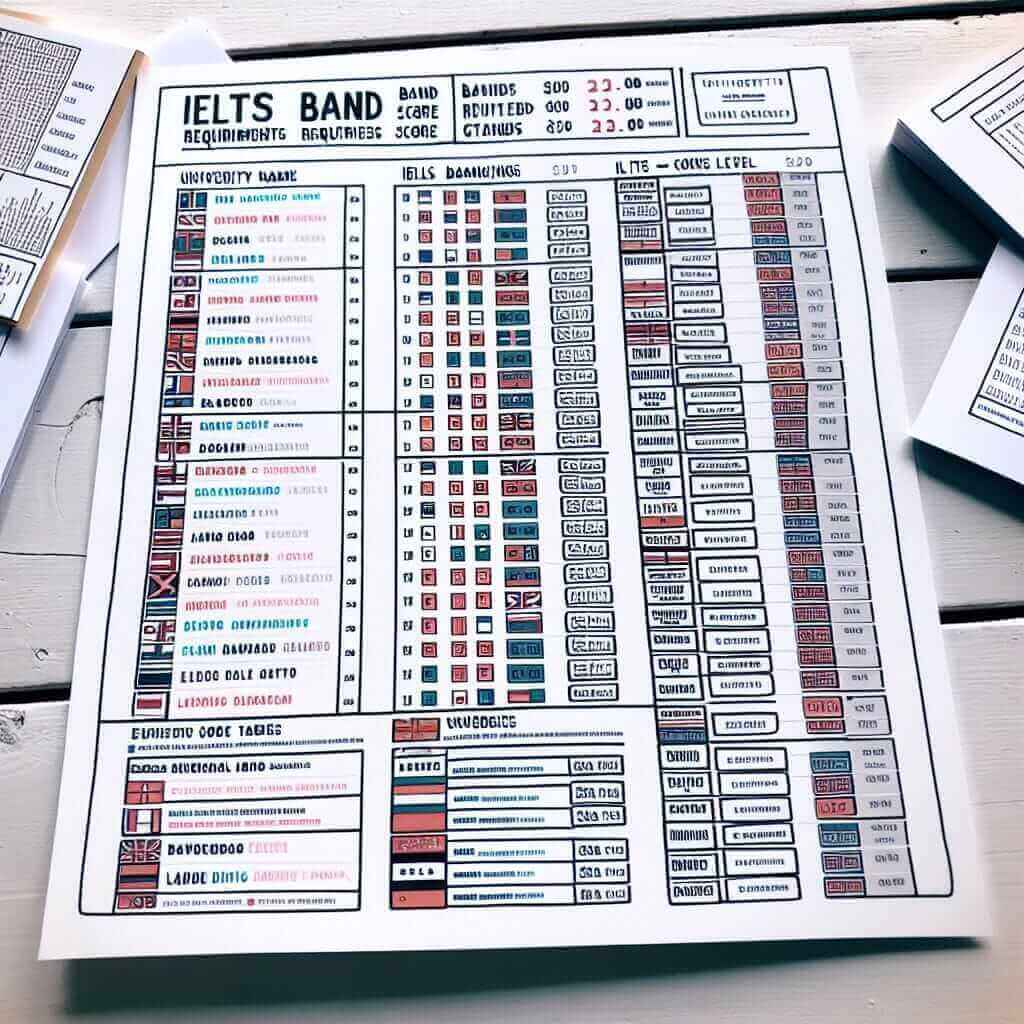Navigating the world of university applications can feel like learning a new language, especially when it comes to English language proficiency tests like IELTS. For international students dreaming of studying in the UK, understanding IELTS band requirements is a crucial first step. This comprehensive guide will break down everything you need to know about IELTS scores for UK universities, equipping you with the knowledge to confidently pursue your academic aspirations.
Understanding IELTS and its Importance
The International English Language Testing System (IELTS) is a globally recognized test that assesses your English language abilities across four key areas: Listening, Reading, Writing, and Speaking. UK universities, known for their high academic standards, use IELTS scores to ensure that international students possess the necessary language skills to thrive in their chosen courses.
IELTS Band Requirements for UK Universities
While a single minimum IELTS score doesn’t exist for all UK universities, most institutions require a minimum overall band score of 6.0 or 6.5. However, the specific requirements vary depending on several factors:
1. University Ranking and Prestige
Generally, higher-ranked universities, such as those in the Russell Group, tend to have higher IELTS requirements. For instance, the University of Oxford typically requires a minimum overall band score of 7.0, while a less competitive university might accept a 6.0.
Example:
- University of Cambridge (Russell Group): Overall band score of 7.5, with no less than 7.0 in each component.
- University of Birmingham (Russell Group): Overall band score of 6.5, with no less than 6.0 in any skill.
- University of Leicester: Overall band score of 6.0, with no less than 5.5 in any skill.
2. Course Level and Subject
Undergraduate courses often have slightly lower IELTS requirements compared to postgraduate programs. Furthermore, courses with a strong emphasis on language, such as Law or Literature, might demand higher IELTS scores than subjects like Engineering or Mathematics.
Example:
- Master’s in English Literature: Overall band score of 7.5, with at least 7.0 in Writing and Reading.
- Bachelor’s in Business Management: Overall band score of 6.5, with no less than 6.0 in any skill.
- PhD in Engineering: Overall band score of 7.0, with a focus on technical writing skills.
3. Individual Course Requirements
It’s essential to check the specific IELTS requirements for your chosen course on the university’s official website. Some programs might have specific band requirements for individual skills. For instance, a Journalism course might require a higher score in Writing.

Utilizing IELTS Resources for Success
IELTS Official Website:
The official IELTS website provides a wealth of information, including practice materials, test format explanations, and band score descriptors. Familiarizing yourself with these resources is crucial for understanding the test structure and expectations.
University Websites:
Thoroughly research your target universities’ websites. Look for sections dedicated to international students or admissions requirements, where you’ll find detailed information about IELTS band requirements for specific courses.
Common Mistakes to Avoid
- Assuming a “One Size Fits All” Approach: Remember, IELTS requirements are not universal. Tailor your preparation to meet the specific requirements of your chosen universities and courses.
- Neglecting Specific Skill Requirements: Pay attention to any individual band score requirements for specific skills (Listening, Reading, Writing, Speaking).
- Relying Solely on Practice Tests: While practice tests are valuable, don’t neglect developing your overall English language proficiency. Focus on improving your vocabulary, grammar, and communication skills.
Tips for IELTS Success
- Start Early: Begin your IELTS preparation well in advance of your application deadlines to allow ample time for improvement.
- Focus on Your Weaknesses: Identify your weaker areas and dedicate extra practice time to those skills.
- Utilize Official Resources: Familiarize yourself with the IELTS test format and practice using official materials.
- Seek Professional Guidance: Consider enrolling in an IELTS preparation course or working with a tutor for personalized support.
Conclusion
Understanding IELTS band requirements for UK universities is a vital step in your application journey. By researching thoroughly, preparing strategically, and utilizing available resources, you can confidently approach the IELTS exam and increase your chances of securing a place at your dream UK university. Remember, consistent effort and targeted practice are key to achieving your desired IELTS score and unlocking the doors to your academic future. Good luck!